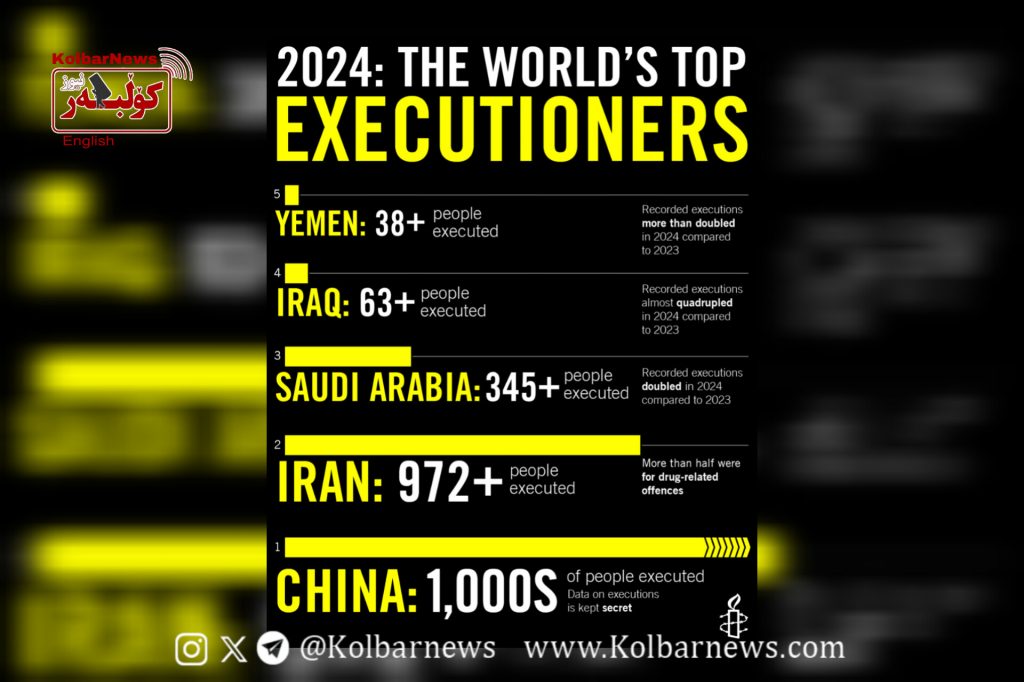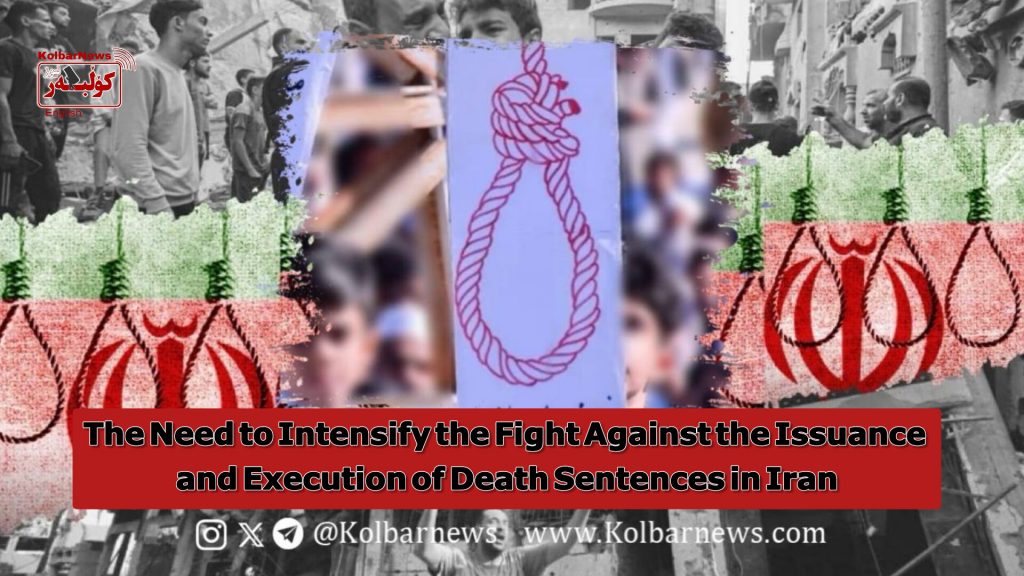
Iran, Saudi Arabia, and Iraq accounted for 91% of recorded executions in 2024. According to Amnesty International, Iran and several other governments have used the death penalty to target protesters and ethnic and national groups.
Amnesty International’s annual report on the global use of the death penalty, released on Tuesday, April 7, 2025, states that the number of executions in 2024 reached the highest level since 2015. Authorities in 15 countries executed at least 1,518 people last year, according to the report titled “Death Sentences and Executions in 2024.”
The majority of these executions occurred in the Middle East. Nevertheless, for the second consecutive year, the number of countries carrying out executions remained at the lowest level on record.
The available data excludes thousands of executions believed to have taken place in China still the world’s leading executioner as well as in North Korea and Vietnam, where the death penalty is widely used but official figures remain inaccessible. Amnesty also stated that it was unable to provide precise data from Palestine and Syria due to ongoing crises.
According to the report, three countries Iran, Saudi Arabia, and Iraq were responsible for a combined total of 1,380 executions in 2024.
Iran alone recorded 119 more executions than in 2023, rising from 853 to 972, accounting for 64% of all documented executions worldwide. This marks a 14% increase since 2015 and the highest number of executions registered in that period.
Iraq saw nearly a fourfold increase in executions, rising from at least 16 in 2023 to 63 in 2024. Saudi Arabia doubled its count, going from 172 to 345 executions.
In Iran, the report notes that the Baluch ethnic group made up at least 10% of those executed, despite comprising only about 5% of the population. The number of Afghan nationals executed tripled, from 25 in 2023 to 80 in 2024 half of them on drug-related charges amid increasing discrimination against Afghan migrants.
At least 30 women were executed in Iran in 2024, some of whom were victims of domestic violence. Additionally, four individuals who were under 18 at the time of their alleged crimes were executed.
Amnesty International also highlighted death sentences for rights activists such as Sharifeh Mohammadi, a women’s rights activist, and Pakhshan Azizi, a Kurdish social worker.
More than 40% of all recorded executions in 2024 were for drug-related offenses. Amnesty stressed that under international law, the death penalty should be reserved for the “most serious crimes,” which do not include drug offenses.
In 2024, Iran executed at least 505 people for drug-related crimes.

